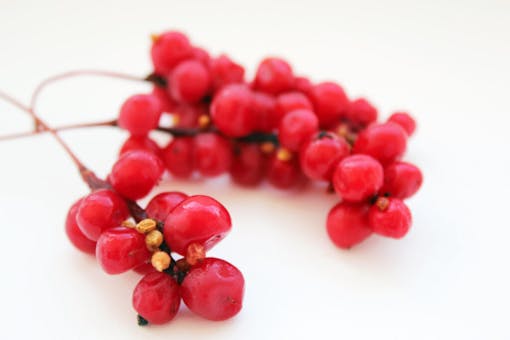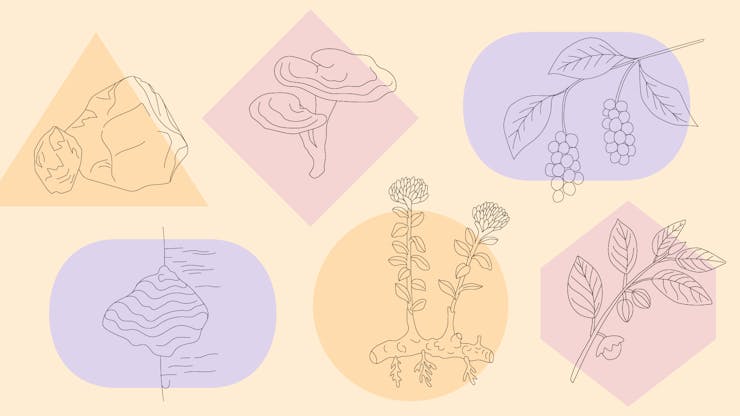Find out what those fancy words on your CBD bottle mean and learn more about adaptogens.
Let’s talk about the past few years: wowza. It’s been a ride. In one way or another, each of us has felt some level anxiety, uncertainty, or disconnection from reality, and most of us have fallen to stress from one thing or another.
The good news is adaptogens are here to help all of us out, and they’ve been here for thousands of years.
What is an adaptogen?
Adaptogens have been used for centuries in healing practices like Ayurvedic medicine and traditional Chinese medicine, but the modern term for these helpful natural ingredients was born in 1947 thanks to the work of Dr. Nikolai Lazarev. Lazarev was a Soviet toxicologist and pharmacologist who studied natural substances that aid our bodies in coping with biological and mental stressors.
An adaptogen is a natural substance that helps you reach homeostasis and supports balanced physiological processes. They include herbs, roots, and fungi that help humans modulate their response to stress, toxins, and the environment.
In the past few years, we’ve seen more adaptogens pop up on supermarket shelves, get added to our CBD tinctures, and become a larger part of the discussion about natural remedies for balanced wellness.
Tackling stress with nature’s medicine
With our collective feelings about the pandemic, inflation, climatic uncertainty, and unaffordable healthcare, it’s easy to see why more people are engaging with adaptogens and adding them into their self-care routines.
Stress is an enemy to our bodies’ homeostasis and a trigger that can lead to premature death in many different ways, so its really no wonder so many people have goals around reducing stress and increasing feelings of wellbeing. Enter adaptogens and their curious natural powers.
From hoppy water with ashwagandha to nut butter mixed with reishi to coffee enhancers packed with brain-boosting shroom blends, these days, you can find adaptogens in more places than ever before. There are even adaptogenic snacks for dogs sprinkled with Chaga.
But if you have no clue what these fancy names mean—worry not. Below is a breakdown of the most common adaptogens you’ll likely encounter on the market today.
Reishi

(Ganoderma lucidum)
Let us introduce you to one of the most powerful mushrooms out there—so much so, that it’s regarded as the Mushroom of Immortality in China. The reishi!
Shop highly rated dispensaries near you
Showing you dispensaries nearAs a supplement, it is popular for stabilizing cortisol levels after working out, preventing athletes from overtraining or injury. It is also popular for balancing blood sugar, boosting immune support, and tackling chemotherapy-induced nausea.
Ashwagandha

(Withania somnifera)
Ashwagandha’s name roughly translates to “horse scent.” It’s a member of the Solanaceae family which includes potatoes, eggplants, tomatoes, and the hallucinogenic Datura tree.
Ashwagandha is frequently used to assist with insomnia, arthritis, and nervous system disorders, including Parkinson’s and Alzheimer’s.
Schisandra

(Schisandra chinensis)
In Asia, you will find the schisandra vine plant by asking for the “five flavor berry” (or wu wei zi) to tone the body and increase your focus capacity. It grows in the northern hemisphere in cold weather.
Its antioxidant and anti-inflammatory properties make it a popular choice for those dealing with liver problems and as a multi-purpose adaptogen.
Rhodiola

(Rhodiola rosea)
Commonly known as golden root, this natural tonic is wildly popular in Eurasia, and is used to increase strength and promote top performance.
It’s a familiar ingredient in fatigue-fighting potions, and its neuroprotective properties are being studied to treat mild depression and bipolar disorder.
Chaga

(Inonotus obliquus)
Although Chaga is a mushroom, you might not recognize it at first. It grows mostly on birch trees (particularly in cold locations like Siberia) and it looks like a black lump or rock.
It’s said to reduce inflammation and lower cholesterol. Chaga has a high level of beta-glucans, which are polysaccharides responsible for helping your body reach homeostasis.
Shilajit

This adaptogen is quite rare because it’s not a plant and it’s not a mushroom: it’s a herbomineral extract made from a sort of ooze exuded from Himalayan rocks during the warm months.
Its contents, including fulvic acid, contribute to the transportation of nutrients which helps in preventing chronic fatigue.
Ready to find more natural remedies to help you reduce your stress levels?





